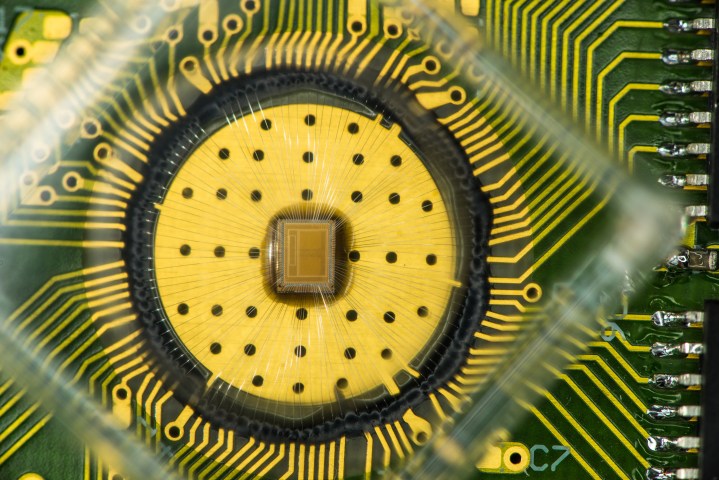
Phase change memory takes advantage of materials that can inhabit two separate states; an amorphous state without a clearly defined structure, and a crystalline state with an organized, rigid structure.
Research into the usage of phase change memory has been promising, but there are still questions about the technology’s capacity for scaling, according to a report from Extreme Tech. Chip designers want to be sure that shifting to a new type of memory would provide benefits for many years, rather than just a few.
To that end, a team led by Aaron Lindenberg embarked on a research project to find out the speed at which phase change memory changes from one state to another, and how that pace could be harnessed.
The study found that exposing phase change memory cells to a 0.5THz pulse of electricity for just picoseconds can form crystallized filaments that could potentially be used to store data, while the large part of the cell remains in an amorphous state.
The key here is that the memory can change states on a picosecond timescale, whereas today’s DRAM operates on a nanosecond timescale. This means that phase change memory could potentially perform certain operations up to a thousand times quicker, while offering other benefits like reduced energy consumption and the ability to store data permanently even without power.
Aside from the speed, researchers also found that the crystallized filaments can be reliably measured. Because of that, it would be possible to store memory in the phase change material. The measurement of filaments might be used as a means of storing dead.
“This work is fundamental but promising,” said Lindenberg in a statement regarding the research that was released by Stanford. “A thousandfold increase in speed coupled with lower energy use suggests a path toward future memory technologies that could far outperform anything previously demonstrated.”


